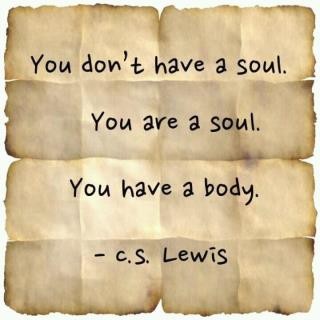 If you read last Thursday’s post, you know spiritual involvement affects depression in a major way: A review of 444 quantitative research studies, spanning 50 years, found that religious/spiritual involvement lessened the incidence of depression and/or reduced depression severity in over 60% of the studies.
If you read last Thursday’s post, you know spiritual involvement affects depression in a major way: A review of 444 quantitative research studies, spanning 50 years, found that religious/spiritual involvement lessened the incidence of depression and/or reduced depression severity in over 60% of the studies.
But wait! There’s more!
These review authors didn’t just tally up all the ‘good’ and ‘bad’ results and throw out a flashy number. Nope, they rated the methodological rigor of each study on a scale of one to ten. These ratings emphasized study design, sampling method, number and quality of religious/spiritual measures, quality of mental health outcome measures, inclusion of control variables… you get the drift. Then they looked at the numbers again.
Of the 444 studies, 178 (40%) were rated 7 or higher. Of those (we’ll call them the best studies), 67% found less depression, faster recovery and/or greater responsiveness to religious/spiritual interventions – that’s even better than the first statistic!
If you’re still not impressed (and if you’re still not impressed, this is a really tough crowd!), let’s take a look at religiosity and depression in high risk individuals:
A 2012 study followed 114 adult offspring of depressed and non-depressed parents over the course of 20 years (religious feelings were assessed at the 10-year mark). The result? Those who indicated that religion/spirituality was highly important to them were 73% less likely to be depressed! But that’s not even the cool part. Those at high risk of developing depression (due to prenatal depression), who indicated at the beginning that religion/spirituality was highly important to them, were 90% less likely to have major depression. 90%!!
Ok, and just one more: A second report from this same study examined the relationship between religion/spirituality and future depression episodes based on level of exposure to negative life events (which can be a huge trigger for depression).
I think we all know where this is going, so here’s the numbers:
For high risk participants (those with depressed parents) who had high exposure to negative life events, attendance at religious services reduced the likelihood of major depression on follow-up by 76%, mood disorders by 69% and any psychiatric disorder by 64%. Self-claimed importance of religion/spirituality also reduced the odds of mood disorders in this group by 74%!
Now that’s a lot of numbers, so we’ll just let all that sink in for a little bit. But don’t worry – posts in the next few weeks will look into why these numbers are so high!
I’d love to hear your thoughts!
Do you consider religion/spirituality to be important? Have you ever noticed a relationship between your spiritual involvement and mental health? Are these numbers what you would expect?
References
Bonelli, R., Dew, R.E., Koenig, H.G., Rosmarin, D.H. & Vasegh, S. (2012). Religious and spiritual factors in depression: review and integration of the research. Depression Research and Treatment, 2012. doi:10.1155/2012/962860
Kasen, S., Wickramaratne, P. & Gameroff, M. J. (2011). Religiosity and resilience in persons at high risk for major depression. Psychological Medicine, 17, 1–11. doi: 10.1017/S0033291711001516
Miller, L., Wickramaratne, P., Gameroff, M. J., Sage, M., Tenke, C. E. & Weissman, M. M. (2012). Religiosity and major depression in adults at high risk: a ten-year prospective study. American Journal of Psychiatry, 169(1), 89–94. doi: 10.1176/appi.ajp.2011.10121823



From my experience, my religion/spirituality helps reduce the severity of depression connected to negative life events. I haven’t been immune to depression, but I think my religion/spirituality (Christianity) has lessened the severity & duration of it. Translation: My faith in Christ helps keep me from being a constant, complete mess. Heh.
I feel the same way :) I’m going to write more in an upcoming post, but some of the main reasons researchers have found for this ‘protection’ is that faith fosters a community of supportive peers (so you have people to turn to/you don’t feel so alone). Faith, on its own, has also been associated with a lot of positive qualities (not just my opinion, there’s been studies lol) which could also help in coping with depression, as well as limit the amount/severity of negative life events that one encounters (i.e., good actions limit the possibilities of bad situations). Thanks for commenting! :)
Morning!! This is a great study.. The ladies in my church just had a bible study about Secret Sins. Before I get into that, we didn’t actually go around the room and share the things that we struggle with the most, but it was more about how holding onto that sin or whatever it is that you do to someone else or yourself can affect you. The guilt that you hold over yourself, the stress that it can cause, the physical problems. We looked at Psalm 32 and how David’s “secret” that he was keeping from God (we all know He sees them) effected him physically. Weighed down really stuck out to me. I truly believe that if you have a closer relationship with Christ you are less likely to feel depressed or become that way. There is a direct line to it. When my relationship is off with Him, I feel very sad and lost. Even though I know where to take my concerns, for some reason I feel like I need to carry that guilt around with me for a certain amount of time before I can take it to Him. Crazy I know. This, I feel, can also lead to depression…..even if you are a Christian. I am so thankful that I was introduced to Him by my parents, which means that their parents also had a part in that.
I really loved this post Jessica!
I read an interesting study that said clergy members spend over 15% of their time doing psychological counseling – considering that there are over 300,000 clergy in the USA alone (not including the activities of nearly 100,000 full-time nuns or chaplains), this means more than 140 million hours of therapy is provided by clergy each year – which is equivalent to the entire membership of the American Psychological Association providing 33 hours/week of counseling! (Your bible study group made me think of that!) It’d be great if we could get the two fields (psychology and clergy) to communicate better so both sides could benefit and provide even better services! I feel the same way (“When my relationship with Him is off, I feel very sad and lost”). Your lucky to have such great parents (and grandparents!) :)
My child is mental right now so I can’t read this post word for word yet, but I wanted to comment quickly. I tend to have very high anxiety, and, at this point in my life, I’m not very religious (recovering Catholic :))… It is my goal to get back to the church, and we’re working on it. Because I don’t have a regular meeting with God, I tend to forget to talk to Him in stressful situations. Each time I remember (I’ll have a moment of epiphany like – wait! I can just pray and realize I don’t have any control over this situation!), I am immediately calmer and more hopeful. Can’t wait to dig into this a little further!
I just finished up my post for Sunday – it’s about talking to God during all the little seconds throughout the day, I think you’ll like it :) You should check out one of the earlier articles, Anxiety and the Bible – it has a lot of verses and stuff that might help :) I don’t make it to church near as often as I should, but I’m a firm believer that everyone needs to define their own relationship with God that works just for them – not everybody else! :)
I will check out that post right now.
P.S. I nominated you for a Liebster Award. Check it out on my blog for the details. It took me a few days to finish the post, but what fun! http://totalmamamakeover.wordpress.com/2013/01/19/liebster-award/
thank you so much! that was really kind of you :) i have family visiting this week (wrote my posts ahead of time!) but i’ll start writing as soon as things settle back down! thanks again! :)